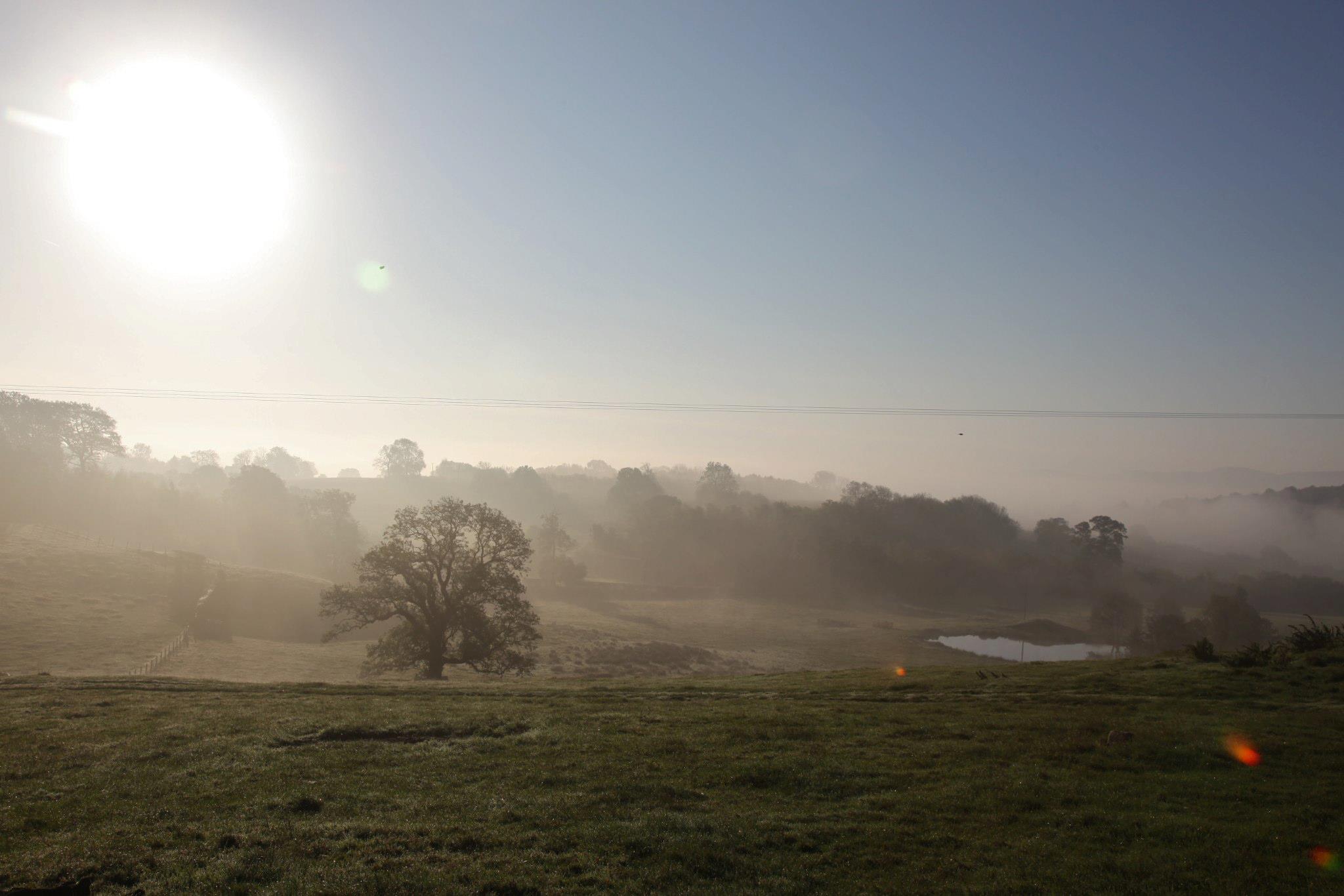Ian and Stefanie Steele run three farming businesses from their home, Treflach Farm in Shropshire. There is the farm itself with livestock spread across 40 hectares of land, a farm-to-fork produce company and a Community Interest Company providing therapy, education and vocational skills development. Treflach Farm is primarily a livestock farm, with free-range grass-fed Hereford cattle and outdoor pigs, however around 5% of the land is also dedicated to growing pig feed, in the form of mixed, whole-crop peas and barley crops.

Ian and Stefanie Steele - Decreasing turnover to increase profits

[Our farm] not only sustains production over time but actively regenerates the environment and therefore boosts biodiversity by capturing carbon, cleaning and slowing water passing through the landscape and encouraging numbers of invertebrates, birds, bats, mammals and flora. The increase in biodiversity then supports our farming practices; increasing animal health and wellbeing leading to increased productivity.
Ian Steele
Since returning to his family farm in 2006, Ian made it his mission to prove that small-scale agriculture could work with the environment and promote biodiversity, while still remaining viable in the modern world. The couple have spent the past decade reducing their use of artificial inputs and taking an unwavering nature-friendly approach to production, which they report has had a profoundly positive effect on the farm's bottom line.
Ian honestly admits that working with slower growing animals has reduced the farm's annual turnover, however he notes that focusing on these hardy breeds has allowed him to reduce the farm's chemical-use which has only had a positive impact on the businesses' profitability. It is not just profits that have been positively impacted by the couple's sustainable farming practices however; Ian reports that the farm's financial resilience has similarly increased because they are no longer facing the peril of unpredictable artificial input costs. Furthermore, he believes that due to their chosen sustainable farming methods, the land has been "insulated" against the worst of the extreme and variable weather. He feels that the land is now in a "strong" position to deal with any adverse changes to weather patterns. A great example of such resilience includes effectively reducing run off and soil erosion due to the farm's minimum tillage approach and abundance of trees.
 Nature-friendly farming has also enabled the Steeles to create a unique brand identity, which is appreciated by their captivated customer base. Ian would even go as far as saying that without their dedication to sustainable production, they wouldn't have a farming business at all.
Nature-friendly farming has also enabled the Steeles to create a unique brand identity, which is appreciated by their captivated customer base. Ian would even go as far as saying that without their dedication to sustainable production, they wouldn't have a farming business at all.
Their success is also down to the farming family being willing to diversify and innovate when it comes to their "reinventions" of the farm. One avenue that Ian is particularly proud of is their Community Interest Company, which provides horticultural therapy and vocational skills-based training to a wide range of client groups, including adults with mental health issues and young people with behavioural problems. This area of the business helps ensure the farm remains community centred but has also concurrently led to an increased presence and brand awareness in the local area.
Focusing on biodiversity has led to a brand image that is appreciated by our customers. I don’t think we would have been able to build this business without our commitment to sustainability.
Ian Steele
Farming sustainably doesn't just make business sense for Ian, he is also keen to share the benefits it has had for the wildlife on his farm. Adopting holistic animal husbandry techniques, such as planned gazing regimes for their cattle, has directly helped to increase the numbers of invertebrates, birds, bats, mammals and flora across the farm. In the latest invertebrate survey carried out on Treflach Farm for instance, the couple found over 180 of moths alone in one 12 hour period. Ian is also proud to have surveyed and recorded an increase in species on their wetland meadow for the past 15 years.
Ian and Stefanie are happy to continue playing their part in what they believe to be a two-way relationship, between their farming business and the natural world that surrounds it. Treflach Farm will always aim to boost biodiversity and regenerate the environment because they know their business will then be repaid with increased animal health and wellbeing, which ultimately leads to increased productivity.
Would you like to share your own nature-friendly farming story?
Please get in touch using the button below, or by emailing alena.walker@nffn.org.uk, with details of your farm, location and the management systems you have implemented.

